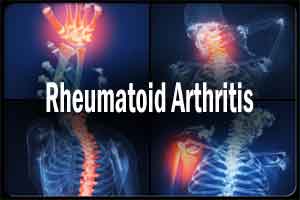- Home
- Editorial
- News
- Practice Guidelines
- Anesthesiology Guidelines
- Cancer Guidelines
- Cardiac Sciences Guidelines
- Critical Care Guidelines
- Dentistry Guidelines
- Dermatology Guidelines
- Diabetes and Endo Guidelines
- Diagnostics Guidelines
- ENT Guidelines
- Featured Practice Guidelines
- Gastroenterology Guidelines
- Geriatrics Guidelines
- Medicine Guidelines
- Nephrology Guidelines
- Neurosciences Guidelines
- Obs and Gynae Guidelines
- Ophthalmology Guidelines
- Orthopaedics Guidelines
- Paediatrics Guidelines
- Psychiatry Guidelines
- Pulmonology Guidelines
- Radiology Guidelines
- Surgery Guidelines
- Urology Guidelines
Different RA medicines have varied heart failure risk

Anti-rheumatic medications are variably associated with heart failure(HF) risk, with lower risk observed among patients taking non-biologic or other biologic/small molecule DMARDs or systemic corticosteroids, according to the research presented at the 2018 ACR/ARHP Annual Meeting, held in Chicago.
Rheumatoid arthritis (RA) is associated with increased risk of coronary artery disease (CAD), but the association with heart failure (HF) is unclear. Michael Ahlers and associates conducted a study to identify factors associated with HF risk among patients with rheumatoid arthritis.
Read Also: New drug effective for treatment of rheumatoid arthritis-The Lancet
The investigators retrospectively identified 9,492 adult RA patients (median age 56 years, 76% female) without prevalent HF at RA diagnosis. RA diagnosis was defined as ≥2 RA specific ICD-9 codes that were ≥ 14 days apart and an anti-rheumatic medication prescription.
Medication categories were: non-biologic disease modifying anti-rheumatic drug (DMARD) [azathioprine, cyclophosphamide, leflunomide, methotrexate, sulfasalazine]; anti-tumor necrosis factor (TNF) [adalimumab, certolizumab, etanercept, golimumab, infliximab]; antimalarial [chloroquine, hydroxychloroquine, quinacrine]; other biologic/small molecule DMARD [abatacept, anakinra, rituximab, tocilizumab, tofacitinib]; and systemic corticosteroid.
Incident HF was defined as ≥1 ICD-9 code with diuretic use within 90 days. The associations between demographic, clinical factors and medications with the risk of incident HF were quantified with multivariable-adjusted logistic regression. The median follow-up time period was 5.0 years.
Read Also: Vitamin D improves quality of life in Rheumatoid Arthritis patients
The key study findings included are:
- A total of 522 RA patients (5.5%) developed incident HF.
- Increasing age, CAD, atrial fibrillation, as well as higher body mass index, heart rate, pulse pressure, and creatinine at baseline (first RA ICD-9 code) were each associated with greater HF risk.
- The risk of HF varied by use of anti-rheumatic medication class before HF.
- Non-biologic DMARDs, other biologic/small molecule DMARDs, and systemic corticosteroids were associated with lower HF risk for all.
- Anti-TNF agents and antimalarials were not associated with the risk of HF.
Rheumatoid arthritis is a long-term autoimmune disorder that primarily affects joints. It typically results in warm, swollen, and painful joints. Pain and stiffness often worsen following rest. Most commonly, the wrist and hands are involved, with the same joints typically involved on both sides of the body.
For reference log on to https://acrabstracts.org/abstract/heart-failure-risk-among-patients-with-rheumatoid-arthritis-association-with-anti-rheumatic-drugs/

Disclaimer: This site is primarily intended for healthcare professionals. Any content/information on this website does not replace the advice of medical and/or health professionals and should not be construed as medical/diagnostic advice/endorsement or prescription. Use of this site is subject to our terms of use, privacy policy, advertisement policy. © 2020 Minerva Medical Treatment Pvt Ltd